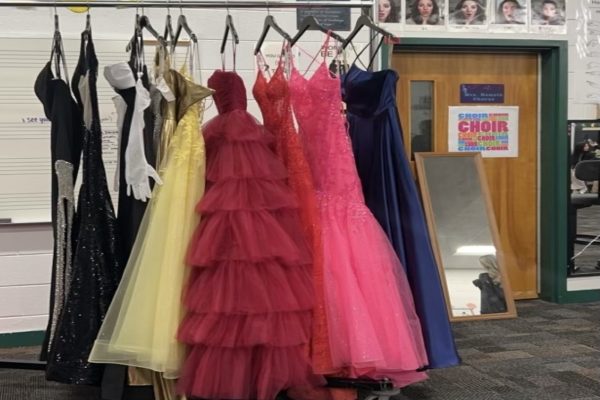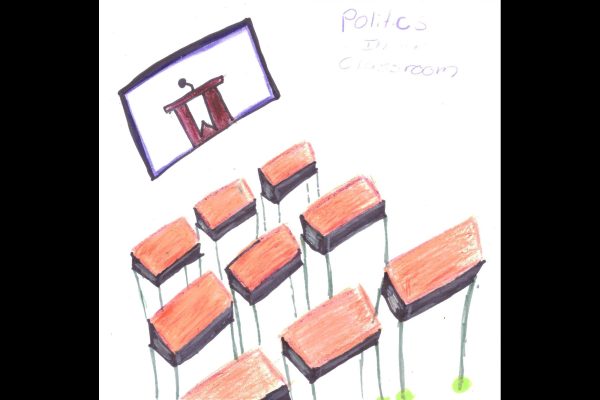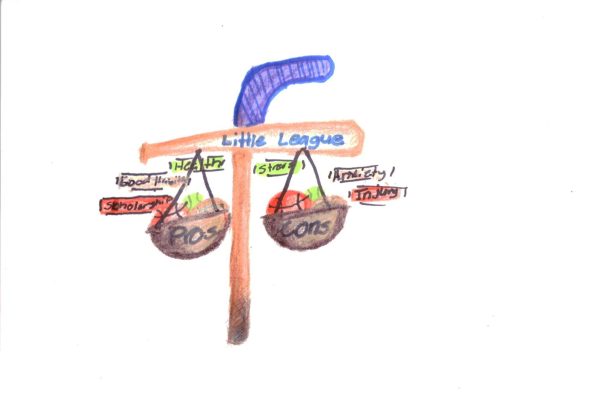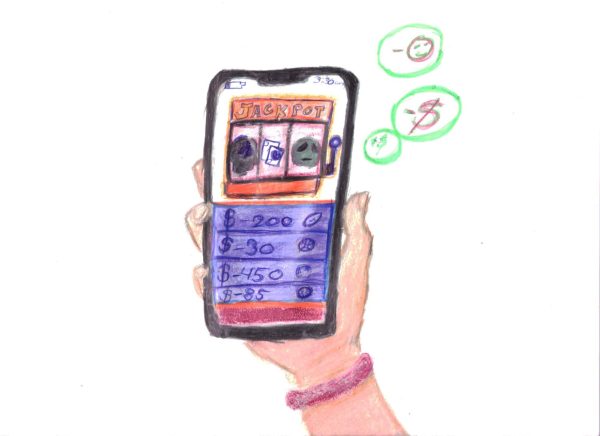Editorial: Should college athletes receive pay for play?
“Colleges reap billions from college athletes but block them from earning a single dollar. That’s a bankrupt model,” Gov. Newsom (D) of California said.
The Collegiate Athletics: student compensation and representation bill was recently signed into law by California Gov. Gavin Newsom that allows college athletes in California to sign endorsement deals and profit off of their image. The bill is wildly controversial as the National Collegiate Athletics Association (NCAA) prohibits its athletes from receiving any income as a player. This bill doesn’t allow athletes to profit directly from the NCAA itself but it still “changes the game.”
The NCAA strictly enforces that student athletes are to maintain amateur status. Receiving income in anyway results in a player being deemed a “professional”. The NCAA argues that with this new law, California schools will have an unfair recruiting advantage thus undermining the integrity of the game.
On the contrary, athletes feel as though they are not properly compensated for their play. Often times, athletes will receive a scholarship to attend a college for little or no cost to them in return for their play on the field. However, the college athletic industry is worth billions of dollars and many feel as if a free education isn’t a fair enough payment for those on your TV screens. In fact, the NCAA reported over $1.1 Billion in revenue in 2018.
The new California legislation was written in a fashion that would prevent colleges from directly paying players, yet still allowing the players to sign their own deals with private companies. This is supposed to curtail pay discrepancies between schools and thus avoid a “who can pay me more” situation. There are still plenty of questions without answers involving the bill, but it won’t take effect until 2023, so lawmakers and the NCAA have plenty of time to figure it out.
Additionally the NCAA has commissioned a committee of various persons to look into providing compensation to athletes for the use of their name and likeness. It was created May 14 of this year and the report they are authoring is due by the end of October. It is uncertain if the NCAA will change any policy following the release of this report.
Former high profile athletes have come out and voiced their opinion against the legislation. Former Florida quarterback Tim Tebow stated that paying athletes takes away from team aspects. Tebow believes that paying players changes team sports to me sports. His position is that it’s no longer about representing the university and being together on a team, but more individualized and self oriented.
Others that oppose this legislation say athlete are indeed paid for their play. Opponents of the legislation state that educational opportunities are ample compensation.
According to UsNews , the average scholarship is worth $18,000.
California lawmakers hope that this law will be the pioneer for athletes everywhere. They hope that other states will follow their lead and adopt this approach for athletic compensation.
Ultimately, student athletes should not be prohibited from profiting off their likeness simply because it may take away NCAA profits. However, schools should not directly pay the players, as this would result in an unfair recruiting advantage and harm the integrity of college sports. Athletes shouldn’t have to sacrifice personal opportunities in order to compete on the collegiate stage, yet colleges should never directly write them a paycheck.
Dear Editor,
I agree with this editorial because I believe college athletes work just as hard as professional athletes. Also, the pressure that’s behind them with all of the March Madness and hype is a lot on college athletes. For them not being able to make any profit of any sort, is unfair.
-Senior, Tony Labib
Dear Editor,
I agree that college athletes should be able to receive endorsements. I agree because they are getting paid by companies not the school so it won’t lead to unfair recruiting. Also some players grew up in a rough area and need money to support their family and they make the NCAA so much money. I believe that these athletes are entitled to a little money since they make the college football league so much.
-Sophomore, Garrett Belote
Dear Editor,
I believe that student athletes should not get paid by their college. It takes away from being in a team and individualizes a player that’s in it mainly for the money. I also think that paying a player would give some schools an advantage in recruiting.
-Freshman, Erin Bailey
Dear Editor,
I believe that college athletes should not get payed. This singles out a player by individualizing them instead of working as a team because of payments. Also, student athletes often receive full or partial scholarships. Why pay an athlete who is already getting benefits? I cannot receive scholarships for the sport I do, so why give more money to star athletes with scholarships. Overall, this bill allowing collegiate level athletes to get paid should not be in affect.
-Junior, Maddie Mennitts










